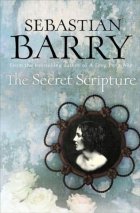
The Secret Scripture
Episode #1955- Year:
- 2008
- 72 Views
First of all, I loved reading this novel and it is an excellent example of his writing of the relationship of his characters to the historical time period 1920's-30's. The reader sees first hand the affects the political, religious and social upheavals had on the characters in his novel.
This novel was inspired by a story told to Barry by his mother about an old relative. He has said, "I felt almost duty-bound as a novelist to reclaim her and indeed remake her."
It is the sad, poignant and tragic story of Roseanne McNulty, the main character, who resides in the Roscommon Regional Mental Hospital. Tragically, she has been a patient there for some sixty plus years. She is celebrating her one hundredth birthday and has decided to write her autobiography.
She has entitled it "Roseanne's testimony of herself" and keeps the previous pages she has written hidden under a loose foot board in the floor or her room. The autobiography charts her life and that of her parents living in Ireland in the town of Sligo at the turn of the 20th century.
The second narrative we read is by the sympathetic chief psychiatrist Dr. Grene who writes in his "Commonplace Book."
The mental hospital is to be demolished and Dr. Grene must decide which patients will be moved to the new psychiatric hospital and who will be released into the community. He must decided who suffers from psychoses and who does not.
Dr. Grene is particularly drawn to and concerned about Roseanne McNulty as he observes no psychosis in her and is puzzled as to why she has been ensconced in a mental institution for more than sixty years.
He views Roseanne as, "just a bit of paper blowing on the edge of the wasteland." She has no living relatives anyone knows of and she has no visitors. She has been alone and forgotten, a nobody, for more than sixty years.
When he talks with her about her past and why she was incarcerated in a mental institution for more than half her life, he notices she is forgetful and a bit confused about past events, common for someone of one hundred years of age, but certainly not anywhere near suffereing from dementia or alzheimer's disease. She shows no evidence of psychosis.
So, why has she been here for more than sixty years? Both Roseanne and Dr. Grene have conflicting stories as to her incarceration and her early life, so Dr. Grene sets out to find the truth - the facts of her time in the mental institution.
What is consistent about both their versions of her life story is that Roseanne fell victim to the religious, political and social upheavals of her generation in Ireland in the 1920's and 30'.
Dr. Grene comes to discover that Roseanne's unique beauty is what has done her in. She was too beautiful a woman if something like that can be.
Through the entries in "Roseanne's testimony of herself," and Dr. Grene's "Commonplace Book," Barry weaves a beautiful yet tragic story of Roseanne's life and how others judged her by 1920's and 30's standards of acceptable behavior and the cruelty of their actions against her.
There is a surprise ending and a twist that I will not reveal, and it is this ending that has confounded the critics. Many critics found the book ruined by the ending, may be thinking it was too cliche, but I did not. I thought the ending brilliant. It was totally believable to me and fitting and in keeping with the psychiatrist being drawn to Roseanne and his obsession with finding out her true story.
I highly recommend reading this novel and any others by Sebastian Barry. Through reading his novels, we learn of another important historical time in Ireland's history. And, what better way to write it than through the wonderful characters he creates in his novels?
Actress Jessica Chastain has bought the rights to this novel and this June (2014) she and Vanessa Redgrave will begin filming the story of Roseanne McNulty in Ireland. It is to be directed by Thaddeus O'Sullivan.
Chastain will play the young Roseanne and Redgrave will play the one hundred year old Roseanne. I can't wait to see the film.
Translation
Translate and read this script in other languages:
Select another language:
- - Select -
- 简体中文 (Chinese - Simplified)
- 繁體中文 (Chinese - Traditional)
- Español (Spanish)
- Esperanto (Esperanto)
- 日本語 (Japanese)
- Português (Portuguese)
- Deutsch (German)
- العربية (Arabic)
- Français (French)
- Русский (Russian)
- ಕನ್ನಡ (Kannada)
- 한국어 (Korean)
- עברית (Hebrew)
- Gaeilge (Irish)
- Українська (Ukrainian)
- اردو (Urdu)
- Magyar (Hungarian)
- मानक हिन्दी (Hindi)
- Indonesia (Indonesian)
- Italiano (Italian)
- தமிழ் (Tamil)
- Türkçe (Turkish)
- తెలుగు (Telugu)
- ภาษาไทย (Thai)
- Tiếng Việt (Vietnamese)
- Čeština (Czech)
- Polski (Polish)
- Bahasa Indonesia (Indonesian)
- Românește (Romanian)
- Nederlands (Dutch)
- Ελληνικά (Greek)
- Latinum (Latin)
- Svenska (Swedish)
- Dansk (Danish)
- Suomi (Finnish)
- فارسی (Persian)
- ייִדיש (Yiddish)
- հայերեն (Armenian)
- Norsk (Norwegian)
- English (English)
Citation
Use the citation below to add this screenplay to your bibliography:
Style:MLAChicagoAPA
"The Secret Scripture" Scripts.com. STANDS4 LLC, 2025. Web. 12 Feb. 2025. <https://www.scripts.com/script/the_secret_scripture_24138>.







Discuss this script with the community:
Report Comment
We're doing our best to make sure our content is useful, accurate and safe.
If by any chance you spot an inappropriate comment while navigating through our website please use this form to let us know, and we'll take care of it shortly.
Attachment
You need to be logged in to favorite.
Log In